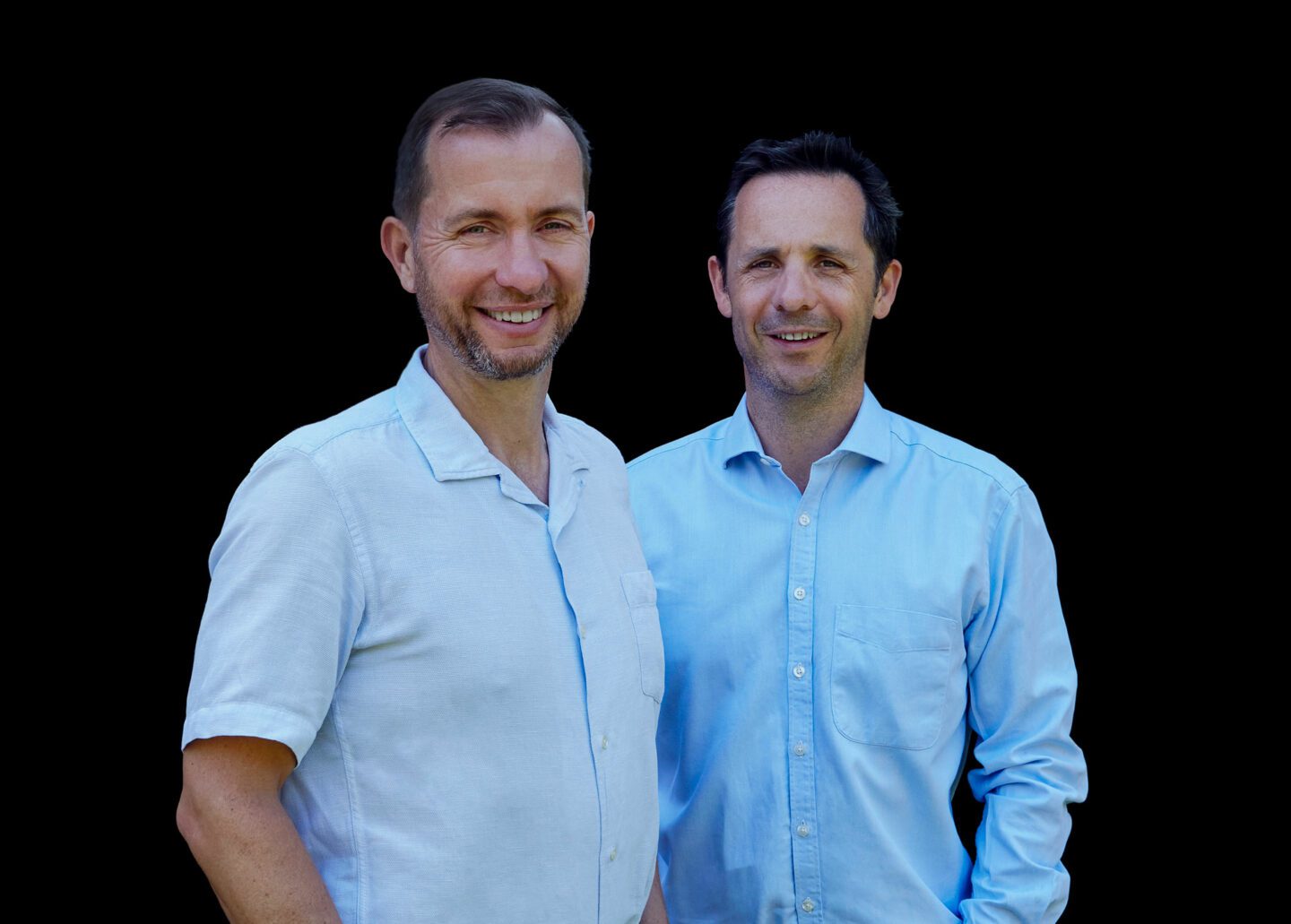
perfORM Due Diligence Services Limited (“perfORM”), a JTC Group Company, has had a strong year, with impressive and rapid revenue growth; they also expanded the team from three to eight people in 2022. The success of this flexible operational due diligence-only boutique vindicates the founders’ vision that a distinctive pure play ODD offering, blending substantially remote working with innovative and efficient use of digitalisation and automation, was needed to meet the needs of the traditional and alternative investment industries.
Throughout my experience, I saw a factory approach to ODD reports which inspired no confidence that a thorough operational review had been completed.
James Newman, Co-Founder, perfORM Due Diligence Services
perfORM’s founders, Quentin Thom and James Newman, first met in 2008 when they worked in the same office complex in London’s main hedge fund area, Mayfair. Thom was at that time a partner of ODD outfit Amber Partners and Newman was Head of ODD at fund of funds Liberty Ermitage, where he vetoed a Madoff feeder fund. They immediately became friends and there was a meeting of minds in terms of shared aspirations for improving transparency, operational risk management and operational due diligence. The dialogue continued across similar career paths, which included Thom becoming EU Head of Hedge Fund Consulting at Deutsche Bank’s Prime division within equities and Newman spending nine years as Global Head of ODD at Barclays Wealth Management.
perfORM finally launched in 2019, but the venture had been years in the making as the duo’s professional networks repeatedly encouraged them to launch a dedicated ODD firm addressing incumbents’ weaknesses, populating voids in the market and offering a more flexible and cost-effective delivery and business model.
“We therefore launched in November 2019, pre-pandemic, with no fear,” says Thom.

(L-R): James Newman, Co-Founder and Quentin Thom, Co-Founder, perfORM Due Diligence Services
Customisation
A practitioner-led ODD business combats “cookie cutter” commoditisation of ODD seen elsewhere.
“Throughout my experience, I saw a factory approach to ODD reports which inspired no confidence that a thorough operational review had been completed. The quality of ODD reports was actually deteriorating and it was often hard to ascertain if the report was written by an ODD practitioner. There was a gap in the market for high-quality ODD reports completed by seasoned ODD professionals,” says Newman.
“A standardised approach that can sometimes be biased towards household name bulge-bracket managers was especially lacking for emerging managers, and/or more esoteric strategies, which demand different prisms of scrutiny, in the context of the organisation, strategy, and asset class,” he adds.
Flexible pricing and cost sharing
Other providers’ pricing levels were too high and fee structures too inflexible for some allocators. A hefty fixed subscription fee with additional fees for plugging gaps in coverage does not align well with allocators adopting a dynamic and flexible approach to researching new strategies, managers and funds. Fixed fees running into six figures quickly exceed seven figures if coverage is patchy. In contrast, perfORM does not charge a fixed retainer, and there is no minimum commitment, although there can be some bulk-buying savings for large volumes of reports. perfORM believe that their fees for a full scope ODD report are competitive, however allocator clients can benefit from discounted re-sale reports.
2019
“We launched in November 2019, pre-pandemic, with no fear,” says Quentin Thom.
Swifter delivery
Long lead times of six months or more for fresh manager coverage can also result in allocators missing out on ephemeral investment opportunities, intermittent capacity windows for older funds, or early bird share classes for newer ones.
perfORM is geared to act faster, especially for ODD reports that are limited in scope covering, for example, the manager and not the fund.
“A very broad-brush guide to perfORM timeframes could be 6-8 weeks, but this may be reduced depending on the responsiveness of managers and service providers,” says Thom.
Avoiding potential conflicts
Some ODD providers may face perceived and/or real conflicts of interest, including where they are effectively marking their own homework.
“Firms offering services such as regulatory hosting, compliance, fund audit, tax advice and governance can be conflicted because they are doing the things they are checking. The one thing that should be partitioned and segregated is ODD,” says Thom.
Even where the ODD provider is not acting for the firm it is reviewing, it might be (consciously or subconsciously) benchmarking operational routines and policies against its own practices, which could bias the analysis.
perfORM’s corporate parent since October 2021, JTC Group, provides a wide variety of fund, corporate and private client services. However, perfORM operates as a standalone boutique with no information synergies and is segregated from the rest of JTC Group.
Larger managers have historically preferred on-site viewing of certain documents, but Covid greatly improved transparency in terms of online and database disclosures.
Quentin Thom, Co-Founder, perfORM Due Diligence Services
Remote working with site visits if needed
Remote working is one factor that reduces business costs, but it is also part of the desired business model.
“We were pandemic-proofed by accident. We opted for remote working as a professional choice based on how the team wanted to work in a decentralised way. However, as the team continues to grow some team members will opt for in-office arrangements and with JTC Group we have access to offices in many countries as we need it,” says Thom.
perfORM can, however, carry out site visits in certain situations e.g., if a client requests it, if a manager is reluctant to share information online, or if initial ODD reviews uncover an issue that requires on-site investigation. Reviews of smaller and recently established managers may also benefit from an office inspection, but in most cases adequate transparency can be obtained remotely.
“Larger managers have historically preferred on-site viewing of certain documents, but Covid greatly improved transparency in terms of online and database disclosures. One advantage of data room access is that it is not time limited in the way that a site visit usually is,” says Thom.
Costs of on-site visits are agreed in advance and coordinated amongst multiple offices and clients to maximise efficiency and ensure that cost savings are passed on to clients.
Efficient automation
Digitalisation can reduce costs and improve efficiency, with potential time savings of 20 to 30% across multiple reports.
“Word, Excel and email are not optimal, and they can impact the quality of reviews. We are using technology platforms to gather quantitative and qualitative information. We use technology in a smart way as an enabler, rather than being a tech-led solution. We do not “fintech” our detailed ODD process away,” explains Newman.
perfORM contemplated building proprietary data analytics but opted for a third-party solution. “In 2022 we onboarded the Diligend dedicated ODD platform. This helps to manage significant quantities of data and constructs online questionnaires in a smart way, with nested questions that prioritise what is applicable and reduce the need to write ‘non-applicable’ in irrelevant fields, also saving managers’ time,” says Newman.
A bonus is that perfORM clients get portal access to receive information, analysis and charts, to manage the ODD process from their end.

James Newman, Co-Founder
ODD with an investor mentality
“I have been an allocator for 20 years, responsible for end clients’ exposure to operational risks, and I always think about whether I would invest my own money,” says Newman.
Thus, perfORM have the mindset of an investor but, in contrast to investment consultants, they are not offering manager searches, ratings, portfolio construction or investment due diligence (“IDD”). There are important overlaps between ODD and IDD in several areas, but the perspectives and emphases are different. Newman lists four examples: valuation (what are my investments worth?); liquidity (actual time to cash); risk management (competence and independence); and background checks (looking for skeletons):-
“Valuation: IDD seeks to understand how the portfolio is being valued, particularly for harder-to-value Level 3-line items. ODD is more interested in the integrity, method and independence of valuations,” says Newman.
Liquidity: IDD ranks managers and funds on liquidity risk and avoiding mismatches. ODD also covers this, and will dig deeper into the investor cohort and concentration dynamics, since a large redemption can impose costs on a liquid portfolio that are borne by longer term investors, in vehicles without exit fees or swing pricing. Additionally, some types of investors tend to be stickier than others.
Risk management: IDD considers portfolio risk management and stress testing, whereas ODD will pay more attention to the integrity, independence and veto power of a risk management team or CRO.
Background checks: IDD tends to complete background checks on key investment personnel at an investment manager. ODD will run those same checks on non-investment personnel such as the COO and take this to the next level by looking at the asset manager’s own policies on doing background checks on its staff and hires.”
Manager therapy and reports
Whereas investment consultants who also have fiduciary responsibility generally only act for allocators, perfORM is different.
“Our liberated ODD business can also act for asset managers and service providers, though the largest part of the business remains manager ODD commissioned by allocators,” says Thom.
Two services can be offered to managers. ODD Manager Therapy generates a remediation memo for internal use, while an ODD Manager Report can be shared with parties approved by the manager and is the same scope, look and feel as a report commissioned by an allocator; managers are only permitted to check facts for accuracy.
Any ODD Manager Therapy carried out prior to an ODD Manager Report for an allocator would be disclosed.
“In one instance, an allocator requested that the manager had ODD Manager Therapy prior to their commissioned ODD Manager Report. This helped since we already had the documents and knew a lot about them, operationally, though it is fairly unusual,” says Thom.

Quentin Thom, Co-Founder
Service provider reviews
Service provider reviews are more extensive than the service provider coverage in a manager report.
“A full scope 40-to-50-page ODD report on the investment manager and its investment vehicles would typically check that service providers are engaged for the stated functions and carry out other checks. For example, we would verify assets and valuation independence through administrator transparency reports, and whether the fund administrator controls cash by independently authorising withdrawals,” says Newman.
perfORM also assess whether and how managers are carrying out their own ODD on service providers. Exceptions where service providers require more investigation or comment in a manager report could include small or unknown service providers or those subject to adverse media reports.
A full scope service provider review is comparable in length to a manager review, and where it has identified any shortfalls, that knowledge could sometimes also feed into a manager or fund ODD report, where permitted by the terms and any non-disclosure agreement with the service provider or other party who commissioned the service provider report.
Service provider reviews can be commissioned by the service provider itself, or by asset managers, allocators, or other entities, such as sports teams to vet potential sponsors in the nascent and evolving space of virtual asset service providers.
Crypto manager reviews
perfORM have adapted their approach to the new asset classes of digital currencies and decentralised finance, and are members of crypto UK and Global DCA. perfORM have reviewed some well-known crypto managers in centralised and decentralised finance, including those trading liquid long/short, market neutral and statistical arbitrage crypto strategies (including some that The Hedge Fund Journal is familiar with), as well as funds of funds in this space. perfORM recently commenced a special project reviewing 15 venture capital managers investing in less liquid areas such as Web3, blockchain and NFTs.
Reviews of virtual asset service providers (VASPs) – and some other crypto-related service providers outside the VASP definition – have included exchanges, brokers, lenders and custodians.
Exchange failures
Two clients commissioned work on FTX, and perfORM flagged up a number of concerns around opacity, conflicts with affiliates, risk management and key staff turnover.
“A mutual NDA was never completed, and no confidential information was ever provided as a result. An exchange running both an affiliate investment hedge fund type entity and an exchange could present, if not carefully managed and controlled, a conflict of interest, and be open to abuse,” says Thom.
We observed that enabling 101 times leveraged tokens, for some customers, reflected poorly on FTX’s own risk management policy and was way above many other exchanges. We also noticed turnover at senior level, with the head of institutional sales, typically a first contact for helping to coordinate ODD reviews, seemingly leaving abruptly in October 2022. Also, the hedge fund CEO resigning in August and the exchange US CEO in September,” he adds.
Consequently, neither of perfORM’s clients used the exchange, which recently failed. perfORM’s November and December ‘Due Diligence Matters’ e-bulletins and a December 2022 Crypto UK webinar include further discussion.
The exchange research was initially shared with the clients who commissioned the work and perfORM would not have entertained general client alerts or wider publication of the findings, prior to the entity’s failure. Thom argues that the media plays an important role in publicly disseminating risk factors and potential conflicts of interest around all sorts of asset managers and service providers.
There have been multiple failures, and a few “scams” in the crypto world involving coin offerings, funds, brokers and lenders, but perfORM would caution against extrapolating too much from any one incident to others in future.
“A thorough post-mortem of the exchange failure is now underway, and rightly so; lessons must be learned. However, the next ‘blow-up’ is always different from the last and we would always recommend a disciplined ODD approach to ensure our clients do not need to rely on the benefit of hindsight,” says Newman.
Exchange hacks
Hacks of crypto exchanges seem to be a perennial occurrence, which perfORM do monitor, offering a different perspective to some media reports.
“Even if clients of the exchange are made whole and suffer no financial loss there are still reputational risks. Our ODD focuses more on the risk of internal hacks, which have in at least one case in Canada led to permanent losses for clients,” says Thom.
Some custody models, including offline “cold storage wallets” are designed to mitigate or avoid hacking risks for certain investment strategies but will not work for others. The nuances around crypto custody, self-custody, asset segregation and reserve audits are being hotly debated, and are beyond the scope of this article, but have been touched on in perfORM blogs, monthly newsletters and webinars.
Spotting ineffective controls and potential for fraud
perfORM’s founders have identified “red flags” in various organisations that subsequently were made public, although anticipating wrong-doing, fraud investigation and forensic accounting is not their mandate.
During the normal course of an ODD meeting, perfORM might flag up certain relevant weaknesses in internal controls or other matters and propose mitigants to the manager and the client, who may then request remedial action to be implemented.
“Our skill and experience enables perfORM to evaluate whether conditions, environment or framework do not meet expectations in relation to institutional standards,” points out Newman.
perfORM nonetheless do take a risk-based approach to evaluate the potential for fraud.
“We cannot look at rationale or motivation but can identify opportunity for fraud such as weaknesses that are open to abuse that could avail a fraud without too much difficulty. One example would be inadequate controls over appropriation of cash where the CFO and portfolio managers have control over fund expenses without independent control. However, most managers with this weakness have not experienced fraud,” says Newman.
Though in previous incarnations the founders have vetoed funds, today perfORM does not view its role as being to pass or fail a subject, but rather to identify weaknesses to enable allocators to make informed decisions.
Unique strategies and subjective valuation
Beyond crypto, perfORM have reviewed some more esoteric strategies in less liquid asset classes including real estate, private equity, litigation finance and music royalties resulting in sometimes contentious valuation questions, particularly in a year like 2022 where public market valuations have severely recalibrated to higher inflation and interest rates, not to mention the recession risks on the horizon.
On illiquid valuations, “We would generally expect reviews at least twice a year by an independent third party and absent that would take a close look at internal processes, challenges and reasons. Valuations can be particularly sensitive to potential conflicts at certain points of the asset raising cycle,” says Newman.
ESG majoring on governance
The economic and social aspects of ESG form part of a typical report although not significantly so because clients tend to have their own policies and do their own in-depth research. Governance on the other hand has, of course, always been an important part of ODD.
Newman has for many years been advocating better governance, including lobbying the Cayman Islands Monetary Authority (“CIMA”) against individuals being allowed to hold a multitude of directorships and encouraging improved governance and standards.
“I saw first-hand in 2008/2009 how directors taking a secretarial type approach to their duties were not able to protect investors from big operational events. CIMA later released a guidance statement on governance, and smaller governance firms limiting the number of directorships to around 25 sprang up.”
There are differing opinions about directors’ capacity, with some promising not to take on more than five or six engagements.
perfORM find that good governance at the management company level does not necessarily go hand in hand with good fund governance, as the criteria can be different and indeed the Manco should oversee the adviser amongst other service providers.
“Mancos are responsible for their own ODD on service providers, and both the Central Bank of Ireland and the CSSF in Luxembourg have been looking more closely at this post-pandemic,” says Thom.
There is no simple formula for assessing the quality of governance. There are decisions to be made about the number of directors, diversification of the board and ratios between executive and non-executive directors to name a few, based partly on for e.g. the complexity and nature of the activities unique to the enterprise. perfORM believes that emerging managers require adequate oversight and size should not be used as an excuse to avoid it.
“Experienced directors need not be prohibitively expensive for emerging managers since some directors will align their fees with assets and accept a lower initial fee that could rise as assets grow,” says Thom.
Emerging manager governance
Smaller and less experienced managers may need to outsource certain functions and also require their staff to ‘wear more hats’. This is another area where careful judgment rather than fixed formulas should be applied.
“We keep an open mind about outsourcing, so long as there is also a sufficiently senior internal non-investment person, who may well sit on boards and management committees, to oversee it and determine the right balance. It is normal for COOs to utilise external IT and compliance support to some degree, and these internal functions can be expanded as the firm grows,” says Newman.
Upbeat growth outlook
perfORM expect to increase revenues substantially in 2023 leading to the team growing further. ODD hires with accountancy qualifications and/or CFA or CAIA charter holders are preferred, but what matters most is that the perfORM team remain passionate and assiduous “ODD-ers”, a phrase that Thom has coined.
- Explore Categories
- Commentary
- Event
- Manager Writes
- Opinion
- Profile
- Research
- Sponsored Statement
- Technical